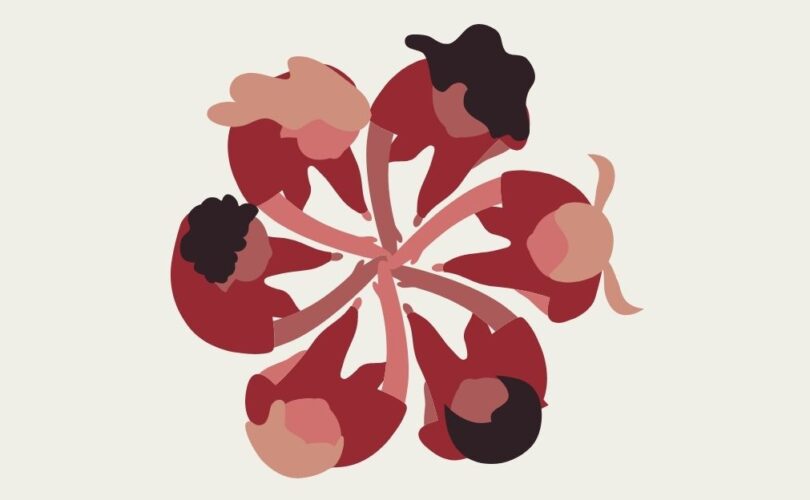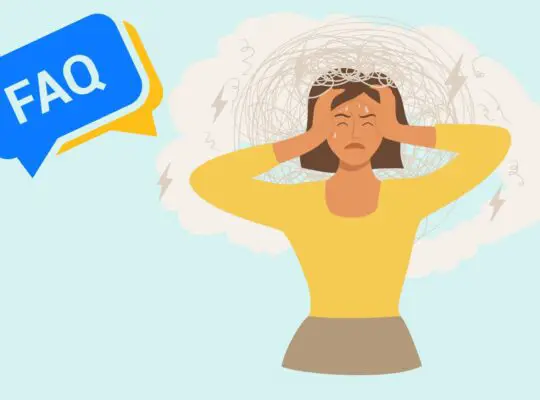Despite the fact that human beings are remarkably unique on an individual level, varying in more ways than could ever be accounted for, there are some traits that remain universal amongst our species.
There’s the obvious traits such as we all require a sufficient amount of food, water, and oxygen. While these requirements are mandatory in the very act of staying alive, digging a bit deeper reveals some additional needs that must be present in order to live a fulfilling life.
One of the most notable of these universal needs is the need to feel a sense of belonging. From the absolute beginning of our species, human beings have been inherently social creatures.
We need to be able to interact with others, to share thoughts, ideas and emotions. Furthermore, we need to feel like we are accepted into things that are bigger than ourselves.
This universal need is not a part of our history simply due to an emotional predisposition that we all contain. When thinking about the hunter-gathering days of our ancient ancestors, being accepted as part of a group was literally the difference between life and death. Without the shelter and protection afforded by a village, tribe and warm campfire, one’s odds did not look very promising.
Furthermore, even the ability to obtain food from rather large prey animals required us to work together in groups to bring these animals down.
Besides basic survival, our meteoric progress in technology and society would not have been possible without people getting together and discussing their thoughts and ideas. By gathering into groups and learning from the mistakes of peers, pondering on how things could be done better and combining our collective knowledge, we have enjoyed progress that our fellow species could never accomplish.
Funny enough, just because we are not huddling around a fire for protection or hunting mammoth in groups across the frozen tundra, human beings still need to feel a sense of belonging to this very day. The need to express ourselves and feel as if we are apart of some sort of community remains a critical need in our lives.
There is an ironic misfortune affecting many people today in that, despite the fact that we are able to communicate with each other more than ever before in human history, a large percentage of people feel extremely lonely.
We can literally log into social media or video chat with each other from opposing sides of the earth, yet an enormous amount of our population do not feel like they belong to any form of social group or community.
Feeling a sense of belonging in today’s world, although differing in context than bygone eras of human life, still entails the same general aspects that have always been present. We all need people that we can have conversations with when we are having problems, people that we know will truly empathize with our situation and offer support and possible solutions.
Being able to celebrate things we are proud of and report our successes to those we are close to is also a common need. People need the feeling of working with others to accomplish a goal or mission that they never could achieve on their own, something that becomes much bigger than the sum of its parts.
You may be in a place in your life right now where you lack the feeling that you truly belong. This may involve a work setting, family dynamic or a group of close friends.
Maybe you use to feel a sense of belonging and something happened that disrupted this connection or perhaps you just haven’t really felt like you belonged to anything in the first place. Whatever the case may be, realize that you are far from the only person who feels this way. Ironically, the simple feeling that you do not belong automatically includes you in a vast number of people who also feel this way.
The purpose of this discussion goes much further than simply informing you that feeling a sense of belonging is important. After all, you have probably already gathered that if you lack this feeling. From this point on, we will be highlighting the specific aspects of the human life require belongingness to remain healthy and balanced.
While the body of research citing this importance is vast, we will list several specific studies that support this subject.
Finally, we are going to break down some tangible ways that can be implemented into your life that are effective at promoting a sense of belongingness.
Hopefully after reading the information presented in this discussion and applying it to your own unique situation, you are able to shed the feelings of isolation and loneliness affecting so many individuals in the world today.
Always remember that you are not a perpetual outcast and that you can rest assured that you belong somewhere. The question is not if you fit in or not, rather, it is finding the right community for you.
Why It Is Important To Belong. What Research Tells Us
- A study published in the Journal of Psychology & Health described how feeling included as part of a group was directly associated with lowered heart rate and more favorable outcomes on self-reported levels of mood and social self-esteem.
- The research journal, Personality & Social Psychology Bullpen, included a review of four individual research studies that identified a strong correlation between a sense of belongingness and the amount of meaning that people feel their lives have.
- The Journal Of Happiness Studies identified an interesting trend in a study that included almost four thousand people. What they found was that the more included a person felt in a particular social group, the happier they were. This study even went as far to calculate a nine-percent increase in happiness for each individual social group a person felt included in.
- A review of 148 different studies, conducted in 2010, discovered a fascinating trend that more than emphasized just how important feeling belongingness is to a person’s physical health. This review concluded that people who reported feeling a low sense of social connection were more at risk for an early death than people who smoked, drank or were obese.
- The Centers For Disease Control & Prevention lists a plethora of statistics illustrating the disastrous affect that feeling isolated can have on one’s health. For example, social isolation was associated with a 50% increased risk of developing dementia. Poor social relationships have been shown to increase the risk of heart disease by 29% and 32% for having a stroke. Loneliness has been linked to significantly higher risks of depression, anxiety and suicide.
How To Promote A Sense Of Belonging In Your Own Life
At this point in our discussion, we have detailed the inherent need that we have as human beings to feel a sense of belongingness. Furthermore, we have included various research studies that describe just how important belongingness is to both physical and mental health.
While this information is without a doubt important, you may still find yourself wondering how any of it can actually be applied to your own life as it pertains to feeling like you belong? After all, throwing a ton on information your way about how critical it is to belong and the health risks associated with loneliness probably doesn’t seem very helpful if you already find yourself struggling in this area.
Well, fear not. For the remainder of this discussion, we are going to list several ideas, strategies and thought processes that provide some actual solutions on the subject of feeling a sense of belonging.
You Have To Put In The Effort
While this is a seemingly obvious statement, developing a sense of belonging in your life is often a matter of making an effort to do so. Many people go through life wondering why they don’t seem to fit in anywhere; meanwhile they avoid people at all costs and refuse to put themselves out there in the first place.
We’ve all heard the advice about how relationships take work, usually as it pertains to romantic relationships. However, forming and maintaining social relationships does not happen without continuous effort on your part.
If you do not currently have any groups or networks that give you a sense of community, there are some important questions you must ask yourself. For example, how diligent are you at seeking out and identifying particular groups of people who are passionate about the things that you are?
Are you putting forth the effort to get to know people in these groups and integrate yourself into these communities?
Finding and becoming a part of social groups is a must, but the effort does not end there. Let’s refer back to the age-old advice we hear about romantic relationships that tells us the importance of continuing to put forth the same time and energy required to begin the relationship on a long-term basis.
If you find a place where you feel like you actually belong, you cannot simply introduce yourself to the group and have a quick discussion before disappearing back into the mist. It does not matter how like-minded you are with a particular person or group of people, if you do not consistently spend time with and interact with them, you are never going to enjoy the happiness provided from a true sense of belonging.
Whether you are trying to find places where you truly fit in or have already found these niches, be sure that you are actually putting in the effort required to identify and maintain these relationships.
Break Your Normal Routine And Try New Things
Another common issue we see with people who live life with a chronic sense of isolation and loneliness is a daily lifestyle pattern that only perpetuates the issue. When you allow yourself to step back and honestly evaluate your day-to-day life, you may be surprised to discover that this pattern describes you to the tee.
The quote about how doing the same thing over and over and expecting different results is the definition of insanity may be the most recycled of all the cliché statements we hear on a seemingly daily basis.
First of all, that is not the actual definition of the word insanity, but that is neither here nor there. However, the quote itself can be applied to the topic of our discussion.
If you are going about your daily life in such a way that you rarely find yourselves in new situations or scenarios that force you to interact with other people, it only makes sense that continuing this routine is only going to compound your lack of belongingness. You cannot avoid other people and in-person interactions on a daily basis and expect to magically stumble across like-minded people.
Just as social interaction is an inherent aspect of human beings, developing and maintaining routines is another. We find safety and a sense of control in our routines, even if they do not always serve us.
Therefore, breaking your lone wolf pattern can be an uncomfortable step, but an important one. After all, the discomfort involved with doing so is much less than the negative feelings associated with feeling alone and that you don’t belong.
Breaking free from your anti-social routine does not (and probably should not) mean that you have to go from loner to social butterfly overnight. This can be as simple as forcing yourself to actually go in to the break room at work while your co-workers are gathered around the coffee machine.
Making gradual, small changes to your daily routine that force you to try new things and interact with people you normally wouldn’t cross paths with is a great place to start.
Shed Your Core Belief That You Simply Do Not Belong
Many people formulate the idea in their minds at some point in their lives that they were simply meant to be loners. This notion can form as early as childhood or even after they become an adult. Much like any other deeply rooted belief system, the idea of being a perpetual loner is often hard to change.
People have a wide variety of reasons as to why this notion develops. Whether it is bullying or a lack of friends early in life, the feeling that they are just smarter than everyone else or some idea that the lone wolf style of living is cool, they simply hang on to this idea. Whatever the case maybe, believing that they are just meant to be misunderstood usually stems from some form of emotional trauma, lack of adequate social skills or any number of self-serving beliefs.
If you are looking for a greater sense of belonging in your own life, ask yourself if you are guilty of thinking this way? If so, this is likely to be one of the primary factors as to why you do not feel you belong in your current situation.
Furthermore, ask yourself if you hang on to this idea for a valid reason or if you are simply using it as an excuse to deny that some other issue may be exacerbating your loneliness? It is important to note that you are not guilty of any crime against humanity in this case, many individuals are doing the same.
We only bring this point up so that you may be able to identify it in your own life and take steps to break free from this belief.
What you need to understand is that you are, in fact, a human being. If we can agree on this point, refer back to earlier in this discussion when we highlighted the inherent nature of all human beings to be social creatures.
Using this information alone, you can probably deduce that you are not meant to go through life feeling alone with no sense of camaraderie or fellowship with those around you.
You may still think that you are the one exception, that your quirks, hobbies, etc., are so different from everyone else’s that finding a group to belong to is a pointless search.
While we won’t go into the overwhelming odds that this is not the case, you must understand that while yes, you are wonderfully unique, you are not so novel and different that you cannot deeply relate to other people.
Even amongst groups of individuals who share a strong bond over one thing or another, there are no doubt significant differences even within these groups.
Finding your tribe and enjoying the much-needed sense that belonging provides does not have to avoid you because you were specifically created to not belong.
Get rid of this notion. You were undoubtedly meant to bring your uniqueness to similar, like-minded individuals who not only accept your different qualities, but actually love you more because of them.
Accepting Yourself First
This is a point that often hits closer to home than others. One of the biggest problems we find in people who lack a sense of belonging is that these individuals really don’t have a sound idea of who they are in the first place. In this situation, finding a lasting and meaningful degree of acceptance amongst other people can be very hard to do.
We are extremely prone to be filled with so much self-doubt and troublesome questions about ourselves that we project the same thoughts onto those around us. We have the idea that if we are so keen at readily identifying things that we perceive to be wrong with us, surely everyone we come in contact with is doing the same thing.
This brings up a compounding issue in the search for acceptance and belonging in your life. If you are unable to sort through your own self-consciousness and shortcomings in such a manner that you identify and accept them, while still choosing to love yourself anyway, you leave yourself in a position where the only sense of belonging you have to depend on comes from external sources.
While it is true that all of us need other people to interact with and enjoy life with, depending solely on others to fulfill your sense of acceptance is risky business. After all, people are extremely finicky creatures.
What we feel and believe can change drastically from one day to the next. You may feel a strong sense of belonging with another person or group of people when, for seemingly no reason at all, the acceptance just isn’t there anymore.
The point we are getting at here is that your sense of belonging must be rooted in self-acceptance at its core before you go looking for it from other people. Whatever problems, shortcomings or limitations that you struggle with in your own life must be dealt with in your own mind. People who are fighting a constant war against themselves have a hard time relating to others on a meaningful level.
Will you encounter situations where people in your life point out and chastise you for your personal issues? Of course you will. However, if you have already decided that you love and accept yourself despite these traits, the opinion of someone else loses its ability to make or break your sense of belonging.
Self-love and self-acceptance are some of the overused buzzwords tossed about in every self-help blog you can find. However, these ideas really do hold a lot of merit when it comes to finding where you fit in regarding other people.
A funny thing you will notice about people is that they will often treat you with the same respect, or lack thereof, that you show yourself. Learn to accept yourself and rest assured that your search for belonging becomes a lot less complicated.
Realize That Belonging Or Not Belonging Can Vary In Different Areas Of Life
As we dive further into our list of ideas and strategies related to why you may lack of sense of belonging and, more importantly, how to solve this issue, we come across another common idea that can cause issues in this area. This is the idea that belonging or not belonging is some binary feeling that we either do or do not have as it pertains to our lives in general.
Take a moment to stop and think about all the different facets of your own life. Think about the positions and titles that you hold, the places you show up to on a daily basis. These include your place of work, your family, possibly a church affiliation, the list goes on.
Keeping these individual aspects of your life in mind, would it make sense that feeling like you may or may not have a sense of belonging in any of these different roles automatically determine the same for the rest of them? The answer should be a resounding no.
While it seems pretty straightforward at first glance, you may be carrying out another funny little trait that we do as people. This is the one where one aspect of our lives isn’t going well so we focus all of our attention on this area and throw the remaining, non-problematic areas in the same pile. We allow the one bad apple to spoil the whole bunch, so to speak.
Understand that you are a part of various situations in your life. There are going to be times, a lot of them actually, when one of these situations is going to run into issues. In this case, you may feel unaccepted or isolated from the people in one of your life groups.
Maybe you have a falling out with a family member and the rest of your family takes their side or a disagreement with a popular coworker causes everyone else in the office to ostracize you.
Whatever the case may be, you cannot let a damaged sense of belonging lead you to believe that you are no longer happily accepted in other areas. Just because you feel a bit exiled at work has nothing to do with the family you come home to every night.
In order to avoid a never-ending cycle of feeling like you belong and social isolation, being able to separate and view the different areas for what they are is a must. After all, if your sense of belonging hinges on feeling this way within all of these areas at the same time, you are only setting yourself up for problems.
When you encounter a problem or situation in a particular area of your life, make sure the issue doesn’t spill over to the rest of your life. You are a multi-faceted individual and always keep in mind that there are others places that accept you with open arms.
Allowing Yourself To Open Up More
When it comes to the specific ties that bond people together, one of the strongest is intimate knowledge of each other’s lives. Sharing your deepest thoughts, secrets, dreams and worries with another person allows a sense of trust and vulnerability that holds real value.
Opening up to other people can be a very intimidating thing to do, and with good reason. Doing so with the wrong people can arm them with sensitive information that can be used against you quite effectively.
While it is certainly important to be careful with this type of information, not allowing yourself to open up to anyone at all is not conducive to your sense of belonging.
At one point or another, you have most likely been betrayed and hurt after someone you confided in did not respect your trust, using personal information you told them against you. This can be quite the emotional gut punch.
Learning from this experience and gaining more discernment on who you do or do not open up to in the future is a beneficial form of self-growth, deciding to never open up to anyone in general is not.
In order to every gain a true sense of connection with other people, one that goes beyond face value and feels authentic, opening up is a must. This does not mean that you spill your heart out to every stranger that you meet in the hopes that they will relate and do the same.
What it does mean is that when you encounter other people, providing information about yourself is a great way to test the waters and see if there are any commonalities that can be built on. Regardless of whether you are seeking acceptance from another person or a group of people, it is this gradual revealing of personal information that forms camaraderie.
We can all agree that there are differing levels of opening up to someone. Some information we keep so guarded that we would only think to share within our most closely-knit relationships. However, the only way to form relationships of this kind is to establish some initial degree of trust and understanding.
If you currently feel that you lack a sense of belonging in your life, it is important to honestly evaluate whether or not you are opening yourself up enough to other people. Allowing the self-defense mechanisms that you have put in place over time to limit your ability to establish meaningful relationships with other people can be a real issue.
The Importance Of Being A Good Listener
In the same way that opening up to other people is crucial as it pertains to gaining acceptance and trust, being able to listen when they do the same is just as important. Feeling a sense of belonging, whether with an individual or within a group, is a dynamic game of give and take.
We often encounter individuals who do not actually listen to others during a conversation. They only listen in order to formulate their own response rather than to try and understand the other person’s point of view. People pick up on this habit quickly and avoid interacting with these types of people altogether.
In your effort to gain belonging, you must not approach each encounter expecting other people to give you their undivided attention and listen to everything you have to say. One-way conversations are not the way these things work.
Of course, feeling like you can speak and be genuinely listened to is important but, in addition, giving other people the same respect is also important to consider.
If you reflect back on previous situations where you seemingly failed to relate to other people, ask yourself if you provided these individuals to speak? If so, did you make an effort to process this information and seek to understand where they were coming from or were you thinking about the next thing you wanted to say?
Make no mistake; other people want to feel understood just as much as you do. In order to create a greater sense of belonging in your own life, you must give others the freedom to do the same.
You May Need To Seek Professional Help
As we have discussed so far, there are plenty of habits and thought processes that may be harmful to the degree in which you feel understood. These often include picking up on social cues, changing your daily routine, relatively simple changes that can be made to resolve the issue.
On the other hand, the issue could very well be a symptom of a psychiatric issue that should be discussed with a professional. Should this be the case, don’t assume that your problem with acceptance is insurmountable or that something is horribly wrong with you.
There are plenty of us dealing with things such as social anxiety disorder that can be effectively addressed with the help of a trained medical professional. In the same way that we seek medical help for a physical ailment, mental issues should not be thought of any differently.
Final Thoughts
If you feel like your lack of belonging stems from a truly psychiatric issue instead of some basic mistake or flawed approach, understand that you owe it to yourself to seek out professional help to fix this issue.
As previously mentioned, you are filled with plenty of unique, interesting qualities that are meant to be brought to the table that is the lives of like-minded individuals such as yourself.
Being proactive and starting the process of working through any mental obstacles that keep you from doing so opens the door for so much more belonging and meaningful interactions as you go through life.
Stay well and take care!







